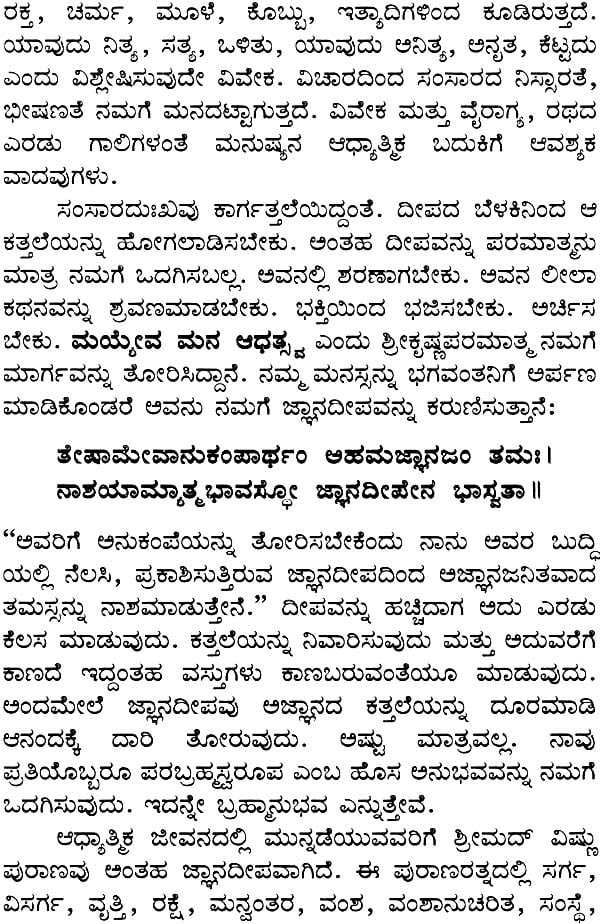Mythology, depicted in above sculpture, is described in the Vishnu Purana. Suvarnabhumi Airport, Bangkok The composition date of Vishnu Purana is unknown and contested, with estimates widely disagreeing.
ಶ್ರೀದೇವಿ ಭಾಗವತ ಮಹಾ ಪುರಾಣ: Sri Devi Bhagavata Purana in Kannada (Set of 2 Volumes) Hardcover (Edition: 2007) Vandana Book House, Bangalore.
Some proposed dates for the earliest version of Vishnu Purana by various scholars include: • (1908): 400-300 BCE, • (1925): ~9th-century, • (1932): possibly early 1st millennium, but states Rocher, he added, 'it is no more possible to assign a definite date to the Vishnu Purana than it is for any other Purana'. • Rajendra Chandra Hazra (1940): 275-325 CE • (1951): 700-300 BCE, • Roy (1968): after the 9th century.
Asus echelon laser gaming mouse drivers download for windows 7. This page contains full list of ASUS Echelon laser gaming mouse available for free download. The drivers in this category is updated weekly, so you can always download the latest ASUS Echelon laser gaming mouse drivers here! If you are not sure which one is the exact driver for ASUS Echelon laser gaming mouse, you can download our. Echelon laser gaming mouse: On-the-fly accuracy adjustments. Flit between five DPI levels at the flick of a switch. Sniper aim assist. Clutch function to reduce DPI instantly.
• (1864): acknowledged that the tradition believes it to be 1st millennium BCE text and the text has roots in the Vedic literature, but after his analysis suggested that the extant manuscripts may be from the 11th century. Rocher states that the 'date of the Vishnu Purana is as contested as that of any other Purana'. References to Vishnu Purana in texts such as Brihadvishnu whose dates are better established, states Rocher, suggest that a version of Vishnu Purana existed by about 1000 CE, but it is unclear to what extent the extant manuscripts reflect the revisions during the 2nd millennium. Vishnu Purana like all Puranas has a complicated chronology.
Dimmitt and van Buitenen state that each of the Puranas including the Vishnu Purana is encyclopedic in style, and it is difficult to ascertain when, where, why and by whom these were written: As they exist today, the Puranas are a stratified literature. Each titled work consists of material that has grown by numerous accretions in successive historical eras. Thus no Purana has a single date of composition. (. Civil cad 2010 free download. ) It is as if they were libraries to which new volumes have been continuously added, not necessarily at the end of the shelf, but randomly. The Vishnu Purana includes several chapters in book 3 on rites of passage from birth through death. Included are chapters on cremation rites (above). After presenting the emergence of Vedic schools, the text presents the ethical duties of the four in chapter 2.8, the four (stages) of the life of each human being in chapter 2.9, the rites of passage including wedding rituals in chapters 2.10 through 2.12, and (rites in honor of ancestors, faith) in chapters 2.13 through 2.16.

The Vishnu Purana asserts that the Brahmin should study, worship gods and perform libations on behalf of others, the should maintain arms and protect the earth, the should engage in commerce and farming, while the should subsist by profits of trade, service other varnas and through mechanical labor. The text asserts the ethical duties of all is to do good to others, never abuse anyone, never engage in calumny or untruth, never covet another person's wife, never steal another's property, never bear ill-will towards anyone, never beat or slay any human being or living being. Be diligent in the service of the gods, sages and, asserts the Purana, seek the welfare of all creatures, one's own children and of one's own soul. Anyone, regardless of their varna or stage of life, who lives a life according to the above duties is the best worshipper of Vishnu, claims the Vishnu Purana. Similar statements on ethical duties of man are found in other parts of Vishnu Purana. The text describes in chapter 2.9, the four stages of life as (student), (householder), (retirement) and (renunciation, mendicant).
The text repeats the ethical duties in this chapter, translates Wilson. The chapters on Shraddha (rites for ancestors) describe the rites associated with a death in family, the preparation of the dead body, its cremation and the rituals after the cremation. The third book closes with the legend of Vishnu, through Mayamoha, helping the win over, by teaching the Asuras heretical doctrines that deny the Vedas, who declare their contempt for the Vedas, which makes them easy to identify and thereby defeat. This soul is of its own nature, pure, composed of happiness and wisdom.
Recent Pages
- Cmud Pro 3 34 Keygens Sony
- Apl1084 Datasheet Na Russkom
- Party Ability Bars 335
- Telecharger Encarta Junior 2009 Gratuite Telecharger
- Font Jersey Borussia Dortmund 2017 2018
- Mastodon Crack The Skye Royal Edition Torrent
- Ignite Keygen
- Download The Essentials Bob Dylan Zip Free
- Akt Defektovki Avtozapchasti Blank
- Quickbooks License And Product Number Keygen Generator For Mac
- Zebra Trafaret A4
- Didakticheskaya Igra Chetvertoe Lishnee Professii
- Download Gratis Tuntunan Sholat Subuh
- Atmega16 Opisanie Na Russkom